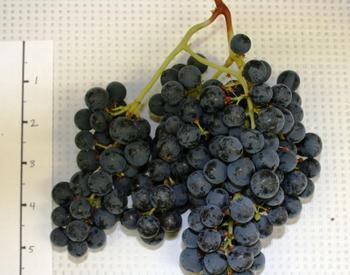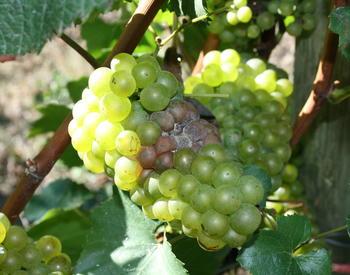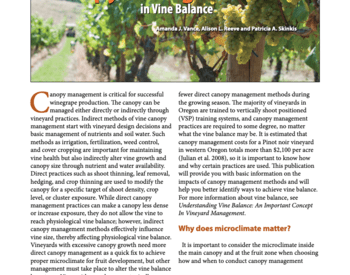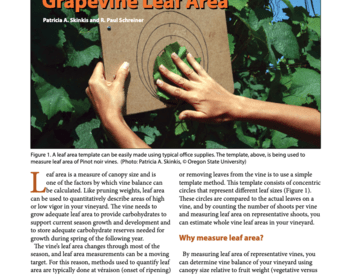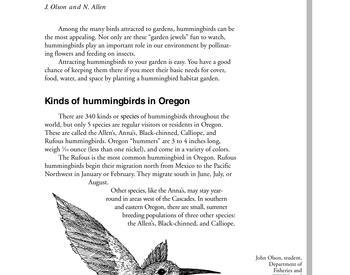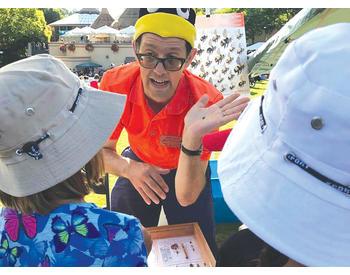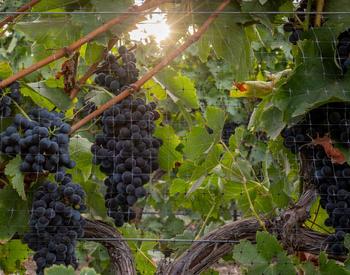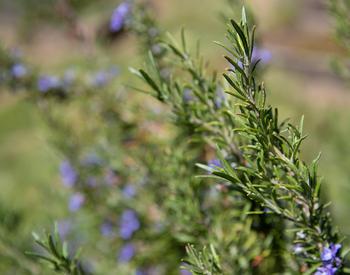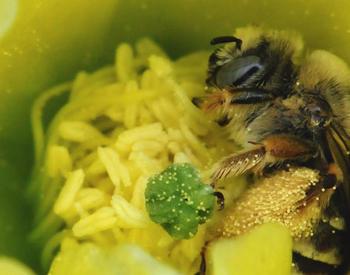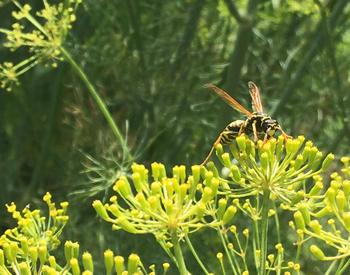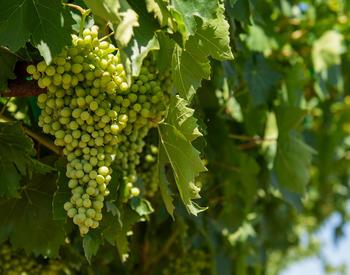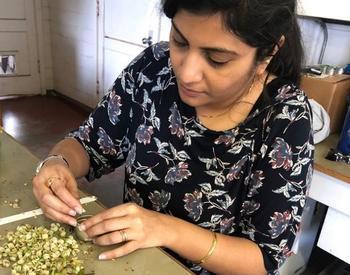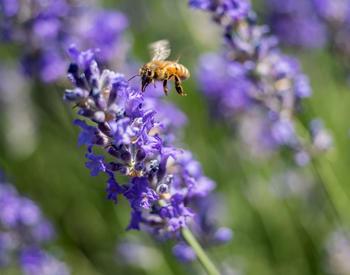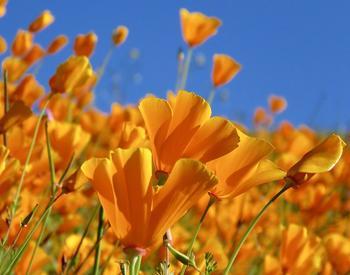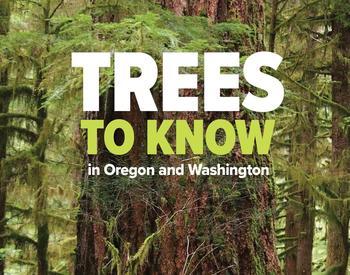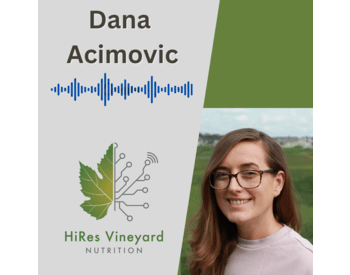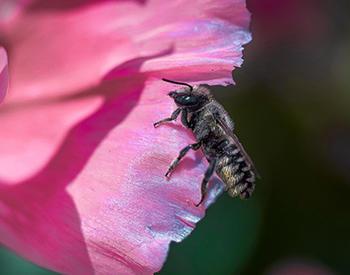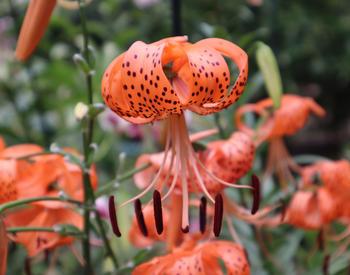Transcript
237 - Bee Friendly Wine
Andony Melathopoulos: [00:00:00] From the Oregon State University Extension Service, this is pollination, a podcast that tells the stories of researchers, land managers, and people like you who are making folds strides to improve the health of pollinators. I'm your host, Dr. Akopoulos, associate Professor of Pollinator Health in the Department of Horticulture.
If you're a frequent listener of pollination, you will notice that I've been absent over the last month or so, and I'm terribly sorry about this. We haven't had a podcast since April 26th. It's very embarrassing to me, but it has been a busy spring as a good friend of mine once said this is the season of Kabloom and I've.
Our lab has been working vigorously. We've got several projects in blueberry pollination or evaluating different forges for their forge plants for their suitability for bees. Of course, [00:01:00] there's the license plate. There's a revision of the Bees of Oregon activity book and there's the new B Stewart program that we enrolled this spring and it's just had me hopping, but a real passion project of mine has.
Been at the center of my attention and that is Be Friendly Wine here in Oregon. The B Friendly Wine Initiative, you can learn about it by going to Oregon b project.org/wine. It has a number of components. One is taking this massive data set from our lab from the Oregon be Atlas, matching it up against the plants that we find on the vineyards in helping those growers figure out which plants they're missing in order to Encourage the highest B biodiversity.
But another really exciting part of it is we have a tour where you go to those wineries to the tasting rooms and you learn about the hedges they're putting in about the landscaping they're doing about mason bees. And this bee friendly wine tour is. What we're gonna be talking about today, the podcast takes place at a picnic [00:02:00] table at Soko Blaser Winery in Dayton, which arguably that area creates some of the best pinot noirs in the world.
And I was sitting across, I feel so honored at Susan's Soko Blaser. Susan is a giant when it comes to the wine industry in Oregon. Soca Blaser was one of the first vineyards the. Established this the Willamette Valley as the prominent wine country that it is today. And Susan is widely acknowledged as one of the leaders in making that big shift.
What's really great about Susan is she's not only deeply committed to growing fine wine, but she is an environmental steward who has been acknowledged for those efforts globally. In this podcast, we're gonna hear about the Be Friendly Wine Initiative, but we're really gonna drill in on this case study of Soko Blaser, how the Oregon wine industry has really set itself apart across the world in terms of really keeping I on both creating wonderful wine, but also [00:03:00] doing so in a way that ensures environmental sustainability.
So this week on pollination, let's go up to the vineyards with Susan Soko Blaser.
Okay. Susan, welcome to Pollination.
Susan Sokol Blosser: Thank you. Pleasure to be here. You
Andony Melathopoulos: can hear the birds chirping in the background. Someone might think we're in a nature preserve. We are at a very special place. We're at SoCo Blosser winery today. Doing a be friendly wine tour. And I think just to start with SoCo Blosser has been around for a long time.
A real industry leader and sustainability has been at the core of of the philosophy of growing wine grapes here. Tell
Susan Sokol Blosser: us a little bit about that. When we first started, which is over 50 years ago we. Thought of ourselves as environmentalists. What we have learned over the years is a deepening understanding of what that [00:04:00] means.
We have moved, we were conventional farmers when we started. We are now totally organic. Our, once we went organic, we could see a vibrancy in the vineyard. That wasn't there in a conventional farm. There's just, you can feel the energy and you hear the birds, I can hear it. The hawks circling riding the airwaves.
It's just really wonderful. And we have become part of the, Prescott Western Bluebird Recovery Project where we have bluebird boxes. This year we have I think 10 boxes, seven of which have either eggs or chicks. Oh my God. Bluebird chicks. Wow. The other boxes have I'm trying to swallows, excuse me, have swallows which are protected and [00:05:00]together those two species are insect patrol.
They don't eat grapes. They eat the insects. So that's part of our little ecology right now.
And
Andony Melathopoulos: we I think we were touring with some of the patrons in the morning. We went by one of the boxes and we had a great. View of this beautiful blooper just darting out at full speed. Yes. Yes. In addition to the conservation, and it's really remarkable where we're sitting right now, where, in the heart of the vineyard through these grand majestic oaks just towering above us, giving us all over the shade.
You've also been interested in bees you're a beekeeper yourself. Tell us how you got started in beekeeping.
Susan Sokol Blosser: I got started because we had a swarm in the vineyard and we hired actually he was a volunteer a local beekeeper to come and get the swarm. And I thought, I should do this.
And I'm no longer running the winery, I have time to become [00:06:00] educated on this. And we wanted a state honey. The bees are also part of our organic ecology, and I, they're amazing. Little creatures. I have so much respect for them. And we have now six hives, and they're very healthy this spring.
We monitor them every 10 days we go through every frame. So I feel very close to these bees.
Andony Melathopoulos: I know it's also last year you grew a co cover crop. Directly for your bees. And this year, again, I just, I could see the what I could see when I drove by. You had those great heads of face, Cecilia, just full of seeds probably the last couple weeks.
The lacy face, Cecilia was just your bees were all over it.
Susan Sokol Blosser: Yes. And the CNO is in bloom right now. They're all over that. You can just, when you go next to the cno around our house, you can just hear the buzz. As well [00:07:00] as see the bees. They're happy.
Andony Melathopoulos: Yeah. Those California lilacs are just such a great b shrub.
They're and I keep stay green through the winter. They look nice and then they just just jam up full of bees every time. Yes. Maybe just tell our listeners a little bit about what we're doing today. So we this is we did a tour for patrons. So people and I think it, this original idea for the tour came from a conversation that we had that, Vineyards are with tasting rooms are uniquely positioned to provide public education.
So tell us a little bit about what we've, what we've been doing today.
Susan Sokol Blosser: We invited people to come and Anthony, you came with a lot of material to talk to them about. And we went around and looked at the plants and what the thing that was so amazing to everyone was how many different kinds of bees there are.
And we saw a lot of them and people were actually able to hold them and take a little picture of themselves with them.[00:08:00] All different sizes, different colors. We're used to just honeybees and bumblebees, but there are so many more. And that was. Really an eye opener to everyone who came.
Andony Melathopoulos: I know one of the the pieces of our project is connecting the with vineyards being able to track the plants that they have growing, matching it up with the Oregon B Atlas records.
And I know one thing that we've when looking at all the plants that are here on the landscape it's let me take a break. I think it's pretty like tight the beam, but nevertheless, little beeping will be.
All right we're good. One of the, one of the, exciting things is being able to connect the plants of the, that we've found bees on the bee atlas with the with the plants here that are growing either in the landscape area, but also the [00:09:00]headlands of the vineyard. And I think one of the things that we had noted is when we.
Back calculated and thought about there's a, 60 species of bees likely to be found. And when we were walking around with the patrons, we could see them. They were, as soon as you zoomed in, there was tiny little dialectic. And there was these.
Susan Sokol Blosser: It was so interesting to see that there were a number of species on the corsis and really only two on the lavender and the cat mint.
The honeybees and the bumblebees that there. Different species appealed to different bees. Everybody has taste, right? So that was very interesting. It
Andony Melathopoulos: was good. And I think people got that picture. It was really nicely laid out that they could, they could visualize by walking through the landscaped area of the tasting room, how they could bring back home.
They, having some lavender would be great, but. [00:10:00] Really, they need also some coreopsis to fill out the picture.
Susan Sokol Blosser: And I think they took away what they could do in their own gardens. For example, rather than buying one plant of this and another of this and another of this. They need a swath of the same thing.
Because that's what the bees want. So you maybe don't have 12 different varieties. Maybe you have three to five, but you have larger sections of those.
Andony Melathopoulos: Yeah, that is great. And I, yeah, I'm excited to think about where this goes next because as part of this project and part of your own plans you're building out pollinator habitat now, and that I can just imagine when people come in next year for the tour, they'll be able to see.
New additions, new elements of how you're trying to increase bee habitat on the farm?
Susan Sokol Blosser: Yes, because now that we know that this is something we can do and there are all these species of bees, we have some open areas [00:11:00] that we could be planting seed mixes that are particularly Particularly appealing to a wide variety of bees.
Andony Melathopoulos: And I maybe just to conclude things, the one thing that I find fascinating about this is, people often ask me, I remember I, I posted on Facebook, we're doing the Be Friendly wine tour, and somebody said, but the vines don't, bees don't, you don't need bees for making grapes.
And why do you think this is a, such a good fit between, bee conservation and I'm just looking at all the birds flying around, bird conservation, all of this. How does this fit in? Why is this sort of really well suited to wine growing?
Susan Sokol Blosser: That's a good question because the be the grapes actually do not need pollination.
But there are a lot of orchards around, there are a lot of vegetables around. This is just, we're all. Part of the whole and bees are an important part of that.
Andony Melathopoulos: Oh, that's great. And I, yeah, I was thinking there's, isn't there apricots, right? AC across? No, there's like a peach.
Susan Sokol Blosser: [00:12:00] There are fruit orchards.
Andony Melathopoulos: Yeah. Yeah. Across the road here on 99. Yes. So that's great. So that you can by building this, it becomes part of a functioning eco Ecosystem across the, the, this whole region, the whole valley.
Susan Sokol Blosser: You bet.
Andony Melathopoulos: Thanks so much. Thanks for opening up your your wine winery today to the public to learn about bees in this.
I'm excited to see all the things that you do in the future.
Susan Sokol Blosser: It was my pleasure. Thank
Andony Melathopoulos: you. Thank you so much for listening. Show notes with links from each episode are available at the website pollination podcast dot Oregon state.edu. I also love hearing from you, and there's a form at the website where you can pop in and say hello and give me feedback.
If you wanna support the show, remember to leave a rating on iTunes, Spotify, or whatever podcast mothership you use. And finally, if you have the means and you want to help support my Lab's effort to document e Biodiversity Oregon, visit Oregon b atlas.org and follow down to the donate button where you can make a tax deductible donation to [00:13:00] the Jerry and Judith Paul native Pollinator endowment.
Every little bit helps. See you next episode.
A number of Oregon vineyards are working together to enhance the habitat for bees (which includes over 700 species in Oregon). In this episode we visit one of those vineyards, Sokol Blosser Winery, and learn about how they are working to improve habitat for their bees.
Links mentioned:
About our guest - Susan Sokol Blosser
Susan Sokol Blosser, wine industry pioneer, community activist, environmental advocate, and author, is a contemporary Oregon icon. Known for her leadership of Sokol Blosser Winery, she was a forerunner in instituting environmentally friendly business practices and practicing the triple bottom line concept of people, planet, profit. With its certified organic vineyard, the first LEED (U.S. Green Building Council’s certification) certified winery building in the U.S., and business practices based on the Natural Step model of sustainability, Sokol Blosser Winery made social responsibility and its environmental ethic priorities, while pursuing its vision of making fabulous wines. For its leadership, Sokol Blosser Winery has received multiple honors, including Sunset Magazine’s 2007 Green Winery of the Year, the State of Oregon’s 2008 Governor’s Award for Sustainability in the Small Business category, and Oregon Business Magazine’s 2009 100 Best Companies to Work For and 100 Best Green Companies to Work For awards.
Susan holds a B.A. from Stanford University and an Honorary Doctorate of Public Service from the University of Portland, citing her entrepreneurship within the context of environmental and social responsibility. Other awards include Lifetime Achievement Awards from Women for WineSense and the Oregon Wine Board. Her memoir, At Home in the Vineyard: Cultivating a Winery, an Industry, and a Life, was published by the University of California Press in 2006, and her business philosophy, Gracious & Ruthless: Surprising Strategies for Business Success, appeared in 2008.
In 2008, she turned the presidency of Sokol Blosser Winery, Dundee, Oregon, over to her children, stepping back with the title of Founder.
